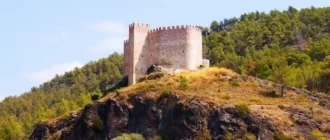The Serengeti, Tanzania
Tanzania, particularly the Serengeti, is poised to be a top travel destination in 2024. The Serengeti promises unforgettable safari experiences٫ including the awe-inspiring spectacle of the Great Wildebeest Migration. Witness mega-herds of wildebeest٫ zebra٫ and gazelle٫ along with diverse birdlife and predators like lions.
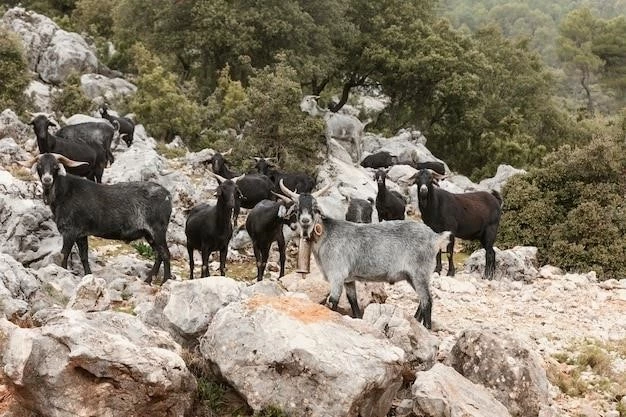
Maasai Mara National Reserve, Kenya
The Maasai Mara National Reserve in Kenya is a world-renowned safari destination, celebrated for its exceptional wildlife viewing opportunities and the breathtaking spectacle of the Great Wildebeest Migration. As a quintessential East African savanna ecosystem, the Maasai Mara offers a remarkable tapestry of rolling grasslands, acacia woodlands, and winding riverine forests, providing a diverse habitat for an astonishing array of wildlife.
The reserve’s iconic status is intrinsically linked to the Great Migration, an annual phenomenon where over two million wildebeest, zebra, and gazelle traverse its plains in search of greener pastures. From July to October, the Mara’s grasslands come alive with the thunderous hooves of these massive herds as they navigate treacherous river crossings and evade opportunistic predators. Witnessing this spectacle of nature’s raw power and the delicate balance of life is an unforgettable experience.
Beyond the migration, the Maasai Mara is home to an astounding concentration of resident wildlife. The “Big Five” – lion, leopard, elephant, buffalo, and rhinoceros – are all present in significant numbers, offering exceptional chances for remarkable encounters. The Mara’s open grasslands provide an ideal setting for observing lion prides stalking their prey, while leopards can be spotted lounging in the branches of acacia trees. Large herds of elephants roam the plains, while buffalo graze in their hundreds, their massive forms a testament to their strength.
The Mara River, a lifeline coursing through the reserve, teems with hippos and crocodiles, adding another layer of excitement to game drives. Birdlife in the Maasai Mara is equally impressive, with over 400 recorded species, including raptors soaring high above the plains, brightly colored kingfishers perched along the riverbanks, and ostriches strutting through the grasslands.
The Maasai Mara offers a range of safari experiences, from traditional game drives in open-sided 4×4 vehicles to exhilarating hot air balloon rides that provide a bird’s-eye view of the stunning landscapes and wildlife below. Walking safaris, led by experienced guides, offer a more intimate way to engage with the environment, while cultural visits to local Maasai villages provide insights into the traditions and way of life of this iconic tribe. Whether seeking adventure, wildlife encounters, or simply a chance to reconnect with nature, the Maasai Mara National Reserve promises an unforgettable safari experience in the heart of Kenya’s wild beauty.
Okavango Delta, Botswana
The Okavango Delta in Botswana is a truly exceptional safari destination, renowned for its unique ecosystem and unparalleled wildlife viewing experiences. This remarkable inland delta, where the Okavango River fans out into the Kalahari Desert, creates a labyrinthine network of waterways, lagoons, and islands, forming a vibrant oasis teeming with life.
The Okavango Delta’s allure lies in its remarkable biodiversity and the diversity of safari experiences it offers. Unlike traditional safari destinations characterized by arid landscapes, the Okavango Delta presents a captivating water-based safari adventure. Explore the delta’s intricate channels and lagoons by traditional mokoro (dugout canoes), gliding silently past reeds and water lilies while observing an array of birdlife and aquatic creatures. The delta’s clear waters provide exceptional visibility for spotting crocodiles lurking beneath the surface and hippos wallowing in mud baths.
Game drives in the Okavango Delta offer a unique perspective on wildlife encounters. Traverse the delta’s islands, encountering herds of elephants cooling off in the water, giraffes gracefully navigating the woodlands, and zebras grazing on the floodplains. The delta’s diverse predator population, including lions, leopards, cheetahs, and African wild dogs, thrives in this rich ecosystem, providing thrilling sightings and showcasing the intricate balance of predator and prey.
The Okavango Delta’s beauty extends beyond its wildlife. The delta’s skies come alive at sunrise and sunset, painting the landscape with breathtaking hues. The serenity of the waterways, the gentle rustling of reeds, and the calls of countless bird species create an ambiance of tranquility and wonder. Accommodation options in the Okavango Delta range from luxurious lodges built on raised platforms to intimate campsites nestled on secluded islands, allowing you to fully immerse yourself in the delta’s captivating atmosphere.
Whether seeking a classic safari experience, an adventurous water-based exploration, or a peaceful retreat surrounded by nature’s wonders, the Okavango Delta offers an unforgettable journey into the heart of Botswana’s pristine wilderness. Its unique ecosystem, abundant wildlife, and breathtaking beauty solidify its position as a top safari destination for discerning travelers seeking an authentic and extraordinary African adventure.
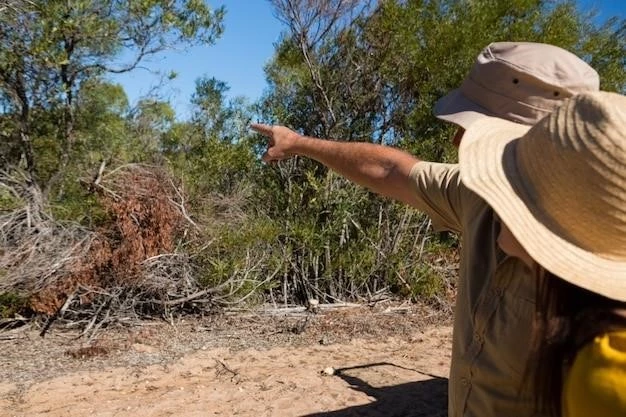
South Luangwa National Park, Zambia
South Luangwa National Park, nestled in the eastern region of Zambia, stands out as a hidden gem among Africa’s safari destinations. Renowned for its exceptional leopard sightings and diverse wildlife populations, South Luangwa offers a truly immersive and rewarding safari experience.
The park’s heart beats along the Luangwa River, a lifeblood sustaining a rich ecosystem and attracting an abundance of wildlife. The Luangwa River, often referred to as the “River of Life,” meanders through the park, creating a tapestry of lagoons, oxbow lakes, and riparian forests that teem with biodiversity. The park’s diverse habitats, from open grasslands and mopane woodlands to riverine thickets and acacia groves, support a remarkable array of species, making it a prime destination for wildlife enthusiasts.
South Luangwa is widely acclaimed for its exceptional leopard density, offering unparalleled opportunities to witness these elusive cats in their natural habitat. The park’s varied landscapes and abundance of prey species create ideal conditions for leopards, and sightings, both during the day and on nighttime game drives, are remarkably frequent. The thrill of spotting a leopard, whether lounging on a branch, stalking through the undergrowth, or gracefully navigating the riverbanks, is an experience that defines a South Luangwa safari.
Beyond leopards, South Luangwa boasts a thriving elephant population, with large herds often congregating along the riverbanks to drink and bathe. The park is also home to lions, wild dogs, hyenas, and a variety of antelope species, including puku, impala, and the endemic Thornicroft’s giraffe. Birdlife in South Luangwa is equally impressive, with over 400 recorded species, making it a paradise for avid birders.
South Luangwa National Park offers a more off-the-beaten-path safari experience compared to some of its more well-known counterparts. The park’s remote location and commitment to conservation have preserved its pristine wilderness, providing a sense of exclusivity and authenticity. Whether exploring the park’s diverse landscapes on game drives, embarking on walking safaris for a closer connection to nature, or enjoying a peaceful sunset cruise on the Luangwa River, South Luangwa promises an unforgettable safari adventure in one of Africa’s most rewarding wildlife destinations.
Kruger National Park, South Africa
Kruger National Park, an iconic conservation area in South Africa, stands as a testament to the country’s commitment to preserving its natural heritage. As one of the largest and oldest national parks in Africa, Kruger offers an unparalleled safari experience, renowned for its exceptional wildlife diversity and variety of ecosystems.
Spanning nearly 2 million hectares, Kruger encompasses a vast expanse of landscapes, from rolling savannas and grasslands to dense woodlands and riverine forests. This diversity of habitats supports an astounding array of wildlife, including all members of the “Big Five” – lion, leopard, elephant, buffalo, and rhinoceros – as well as an abundance of other species, making it a wildlife enthusiast’s paradise.
One of Kruger’s defining characteristics is its self-drive safari experience. Well-maintained roads traverse the park, allowing visitors to embark on their own wildlife adventures at their own pace. The thrill of setting out in a 4×4 vehicle, navigating the park’s roads and tracks, and encountering wildlife around every bend is an experience that defines a Kruger safari. The park’s well-equipped rest camps and picnic sites provide ample opportunities to relax and soak in the surroundings, while guided game drives and bush walks offer a more immersive way to engage with the environment.
Kruger’s size and ecological diversity translate into a remarkable variety of wildlife viewing experiences. The park’s southern region, characterized by open grasslands, is renowned for its exceptional lion sightings, while the central and northern regions, with their denser woodlands and riverine areas, offer prime leopard and wild dog habitat. The park’s numerous waterholes and rivers attract a plethora of animals, especially during the dry season, providing unforgettable sightings of elephants quenching their thirst, hippos wallowing in mud baths, and crocodiles basking on the banks.
Kruger National Park is not merely a safari destination but a testament to conservation success. Its long history of wildlife management and anti-poaching efforts has ensured the protection of its remarkable biodiversity, making it a model for conservation efforts worldwide. Whether seeking a classic self-drive safari, a guided wilderness experience, or simply a chance to immerse oneself in the raw beauty of the African bush, Kruger National Park promises an unforgettable adventure in one of the world’s premier wildlife destinations.
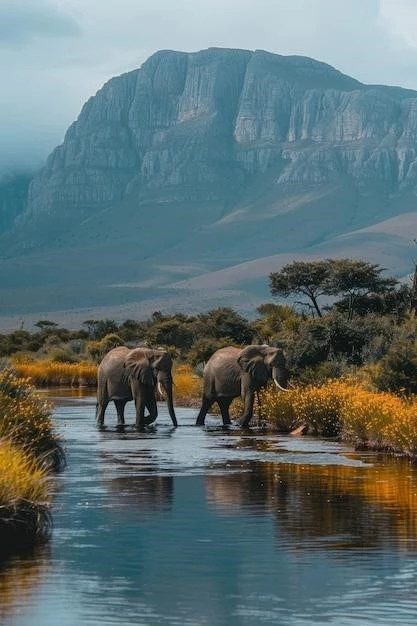
Emerging Safari Destinations
While established safari destinations like the Serengeti and Kruger National Park continue to captivate travelers, a new wave of emerging safari destinations is capturing the attention of adventurers seeking off-the-beaten-path experiences and a deeper connection with Africa’s wild places. These hidden gems offer pristine wilderness areas, abundant wildlife, and a sense of exclusivity often absent in more crowded safari destinations.
Liuwa Plain National Park, Zambia
Liuwa Plain National Park, located in western Zambia, is a vast and untouched wilderness area known for its dramatic landscapes, exceptional wildlife sightings, and commitment to community-based conservation. Home to the second-largest wildebeest migration in Africa, Liuwa Plain offers a breathtaking spectacle of nature’s raw power as thousands of wildebeest traverse its grasslands in search of grazing lands. The park is also renowned for its healthy lion prides, cheetah sightings, and the elusive African wild dog.
Laikipia Plateau, Kenya
The Laikipia Plateau, situated in northern Kenya, offers a unique blend of wildlife conservation, community engagement, and luxurious safari experiences. This privately owned conservancy is renowned for its innovative approach to conservation, where wildlife coexists with local communities and tourism plays a vital role in supporting both. Laikipia is home to a diverse range of wildlife, including elephants, giraffes, zebras, and endangered species like Grevy’s zebra and the reticulated giraffe.
Ruaha National Park, Tanzania
Ruaha National Park, located in southern Tanzania, is a hidden gem renowned for its rugged beauty, untouched wilderness, and exceptional wildlife density. As one of Tanzania’s largest national parks, Ruaha offers a true off-the-beaten-path safari experience, with vast landscapes ranging from rolling hills and baobab-studded plains to riverine forests and rocky outcrops. The park boasts a remarkable concentration of predators, including lions, leopards, cheetahs, and wild dogs, as well as large herds of elephants, buffalos, and antelopes.
These emerging safari destinations offer a glimpse into the future of sustainable tourism in Africa, where conservation, community engagement, and authentic experiences take center stage. By choosing to explore these hidden gems, travelers can contribute to the preservation of Africa’s natural heritage while experiencing the thrill of discovering new and untouched corners of the continent’s wild beauty.
The Rise of Slow Travel Safaris
In a world increasingly dominated by fast-paced itineraries and fleeting experiences, a growing number of discerning travelers are seeking a more immersive and meaningful way to connect with nature and embrace the spirit of adventure. This desire for authentic and sustainable travel has led to the rise of slow travel safaris, a trend that emphasizes mindful exploration, cultural immersion, and a deeper appreciation for the destinations visited.
Slow travel safaris encourage travelers to slow down, savor the journey, and engage with the environment and local communities on a more profound level. Instead of rushing from one wildlife sighting to the next, slow travel safaris prioritize quality over quantity, allowing ample time for observation, reflection, and a deeper understanding of the intricate ecosystems and cultural nuances that define each destination.
Walking safaris, a cornerstone of the slow travel ethos, offer an unparalleled opportunity to experience the African bush on foot, accompanied by experienced guides who share their knowledge of the flora, fauna, and tracking techniques. The absence of engine noise and the slower pace allow for a heightened sensory experience, immersing travelers in the sights, sounds, and smells of the wilderness.
Another facet of slow travel safaris is the emphasis on community-based tourism initiatives. By partnering with local communities, slow travel operators support sustainable development projects, empower local people, and provide travelers with authentic cultural exchanges. Whether visiting a Maasai village in Kenya, learning about traditional healing practices in Botswana, or participating in conservation efforts alongside local communities, slow travel safaris foster a deeper understanding and appreciation for the people and cultures that shape these destinations.
Slow travel safaris extend beyond the realm of wildlife encounters, encompassing journeys by train, boat, or horseback, allowing travelers to traverse vast landscapes at a leisurely pace, absorbing the ever-changing scenery and encountering remote communities along the way. Imagine embarking on a multi-day train journey through the heart of South Africa, witnessing the dramatic landscapes unfold from the comfort of your cabin, or cruising along the Chobe River in Botswana, observing elephants, hippos, and crocodiles from the deck of a traditional riverboat.
The rise of slow travel safaris reflects a growing desire for more meaningful and sustainable travel experiences, where the journey becomes an integral part of the adventure. By embracing a slower pace, engaging with local communities, and prioritizing quality over quantity, slow travel safaris offer a transformative journey that nourishes the soul, expands horizons, and leaves a lasting legacy on both the traveler and the destinations visited.
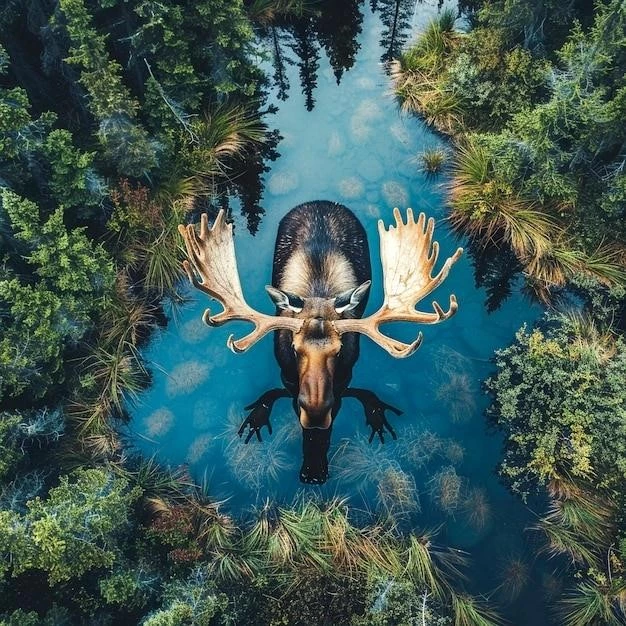
Focus on Conservation and Rewilding
In the realm of safari travel, a profound shift is occurring as awareness grows about the delicate balance of nature and the importance of responsible tourism. Conservation and rewilding efforts are taking center stage, driving a new era of safari experiences that prioritize the long-term well-being of wildlife, ecosystems, and local communities. This heightened focus on conservation is shaping the way safaris are conducted and inspiring travelers to become active participants in protecting Africa’s natural heritage.
Safari operators are increasingly adopting sustainable practices, minimizing their environmental footprint, and supporting conservation initiatives. From utilizing renewable energy sources and reducing waste to partnering with local communities and employing experienced guides trained in conservation ethics, safari camps and lodges are embracing responsible tourism models that prioritize the preservation of natural resources.
Rewilding, a key aspect of conservation, focuses on restoring degraded ecosystems and reintroducing locally extinct species to their natural habitats. Safari destinations across Africa are actively engaged in rewilding projects, creating wildlife corridors to connect fragmented habitats, translocating animals to establish new populations, and working to mitigate human-wildlife conflict. These efforts are crucial in ensuring the long-term survival of endangered species and maintaining the ecological integrity of these vital ecosystems.
Travelers are increasingly drawn to safari experiences that contribute to conservation efforts. Many safari operators offer opportunities for guests to participate in conservation activities, such as tracking endangered species alongside researchers, assisting with wildlife monitoring programs, or engaging in community-based conservation initiatives; These immersive experiences provide invaluable insights into the challenges and rewards of conservation work, fostering a deeper understanding and appreciation for the importance of protecting Africa’s wildlife and wild places.
Moreover, the rise of eco-conscious accommodations further amplifies the focus on conservation. Safari camps and lodges are embracing sustainable design principles, utilizing locally sourced materials, minimizing water and energy consumption, and implementing waste management systems that prioritize recycling and composting. These eco-friendly practices not only reduce the environmental impact of tourism but also serve as inspiring examples of how sustainability can be seamlessly integrated into luxurious safari experiences.
The focus on conservation and rewilding is transforming the safari industry into a force for positive change, ensuring that future generations can continue to marvel at the wonders of Africa’s wildlife and wild places. By choosing safari operators committed to sustainability, travelers can actively contribute to the preservation of these precious ecosystems and support the communities that depend on them.
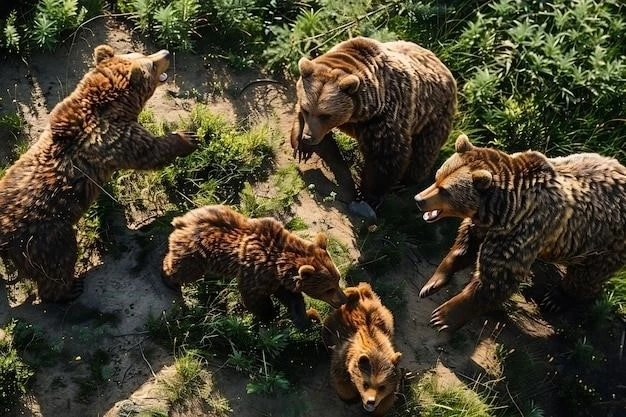
Micro-Adventures on Safari
For the time-conscious traveler or those seeking to add a touch of adventure to their safari experience, micro-adventures offer the perfect solution. These bite-sized expeditions provide a concentrated dose of thrill and excitement, allowing you to delve into the heart of the wilderness without sacrificing precious time. From exhilarating helicopter rides over vast savannas to overnight camping trips under the starlit African sky, micro-adventures on safari cater to a wide range of interests and fitness levels.
One popular micro-adventure is a walking safari, where you can immerse yourself in the sights, sounds, and smells of the bush on foot. Led by experienced guides, these walks offer a unique perspective on the environment, allowing you to track animals, identify plants and insects, and learn about the intricate workings of the ecosystem. For those seeking a greater challenge, multi-day walking safaris provide an opportunity to venture deeper into the wilderness, camping under the stars and experiencing the thrill of encountering wildlife on foot.
For a truly exhilarating experience, consider a hot air balloon safari. As the sun rises over the savanna, drift silently above the landscape, marveling at the panoramic views and the abundance of wildlife below. Spot herds of elephants, giraffes grazing peacefully, and perhaps even a pride of lions on the move. A hot air balloon safari offers a unique and unforgettable perspective on the African wilderness.
Another micro-adventure option is a horseback safari, allowing you to experience the thrill of traversing the savanna on horseback. Ride alongside zebras and giraffes, feeling the wind in your hair as you navigate the open plains. Horseback safaris offer a unique way to connect with nature and experience the freedom of exploring on horseback.
For those seeking a more cultural immersion, consider a visit to a local village, where you can learn about the traditions and way of life of the people who call this region home. Interact with local artisans, experience traditional dances and music, and gain a deeper understanding of the cultural heritage of the region.
Micro-adventures on safari offer a fantastic way to add an extra dimension of excitement and discovery to your trip. Whether you’re short on time or simply seeking a more active and engaging safari experience, these bite-sized adventures provide the perfect opportunity to create unforgettable memories.

